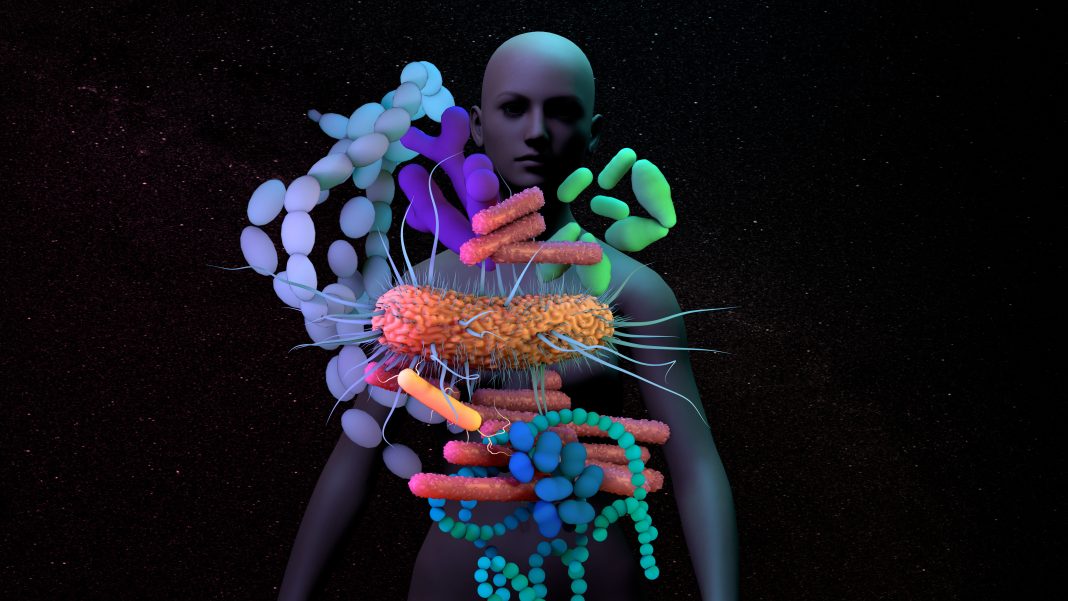Bacterial strains in the gut microbiome genetically diversified with human populations as they spread out of Africa and across the globe, according to a new study. This parallel evolution, or codiversification, means that some gut microbes have had significant long-term relationships with their human hosts and may have influenced human evolution.
The work was led by Ruth Ley, PhD, director of the department of microbiome science at the Max Planck Institute for Biology in Tübingen, Germany. Her team published their work in Science in the article titled, “Codiversification of gut microbiota with humans.”
The human gut microbiome contains hundreds to thousands of species of bacteria, and many of the most prominent species are found in people worldwide. However, within microbial species, some strains can show remarkable genetic diversity between specific human populations. Whether this strain-level diversity arose through a shared evolutionary history between humans and their commensal microbes isn’t fully understood.
“There are reasons not to expect to see codiversification with humans,” the researchers wrote in their article. “Our diets have changed with time, our populations have expanded across the world, and modern lifestyles may have blurred any signals.”
To test for codiversification, Ley’s team collected saliva and fecal samples from individuals in Gabon, Vietnam, and Germany to generate new paired human genome and gut metagenome data. They also leveraged existing data for individuals from Cameroon, the Republic of Korea (South Korea), and the United Kingdom by generating fecal metagenomes and/or host genotype data as needed. In total, their dataset consisted of paired gut metagenomes and human genomes for 1225 individuals living in Europe, Asia, and Africa.
Then they created a maximum likelihood phylogeny to evaluate the genetic relatedness of the individuals. “As expected, humans clustered into three robust major groups matching their geographic origins, where individuals from Asia and Europe formed sister clades nested within individuals from Africa,” they wrote.
They also created phylogenies for 59 strains of common microbes and found that 36 of them were similar to the human host phylogeny, indicating codiversification. Almost all of the strains were not previously known to codiversify with humans. “Moreover, species displaying the strongest codiversification independently evolved traits characteristic of host dependency, including reduced genomes and oxygen and temperature sensitivity,” they wrote.
In a perspective published in the same issue of Science as the research paper, Andrew Moeller, PhD, an evolutionary biologist from Cornell University, commented on the work. “[The findings] also suggest the exciting possibility that the close-knit associations with codiversifying gut bacteria have affected human evolution. Codiversifying host-microbe symbioses can generate divergent selection pressures on hosts, driving adaptation of host populations to the specific strains with which the hosts evolve,” Moeller wrote.
“If human genetic variation has been shaped by interactions with codiversifying gut bacteria, then microbiota-based therapeutics may need to consider the genealogical histories of both patients and the patients’ gut bacterial strains,” he continued.
Ley’s research team pointed out that knowing which bacteria have had long-term relationships with humans may help develop microbiome-based treatments specific to each human population. “The microbiome is a therapeutic target for personalized medicine, and our results underscore the importance of a population-specific approach to microbiome-based therapies,” they concluded.



